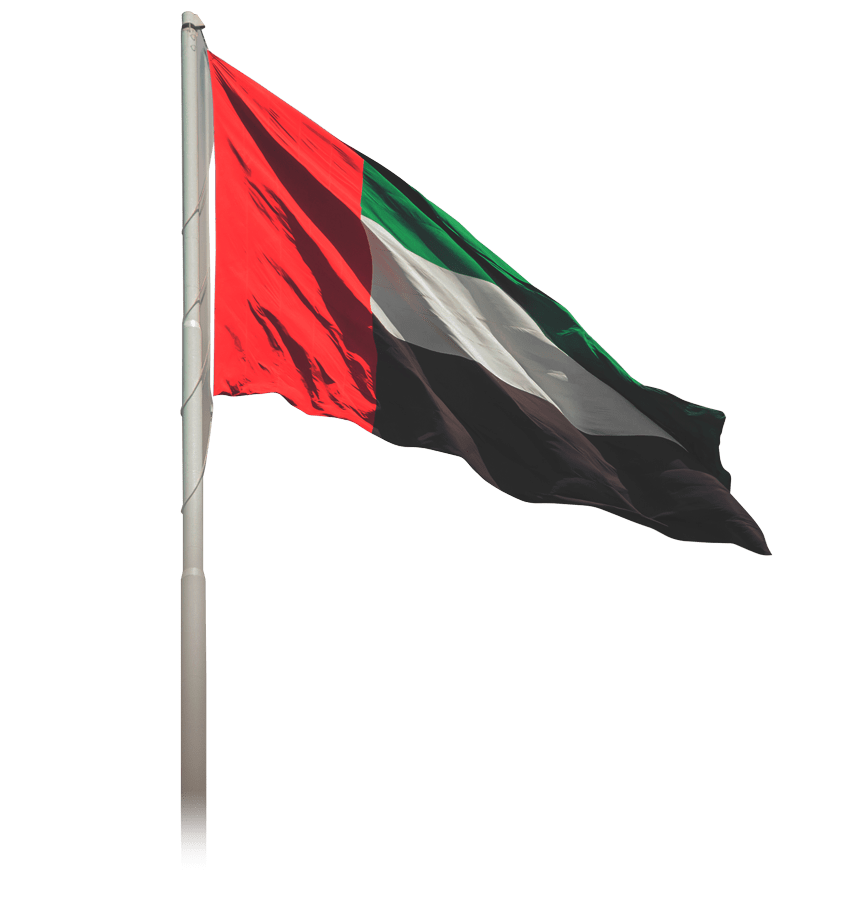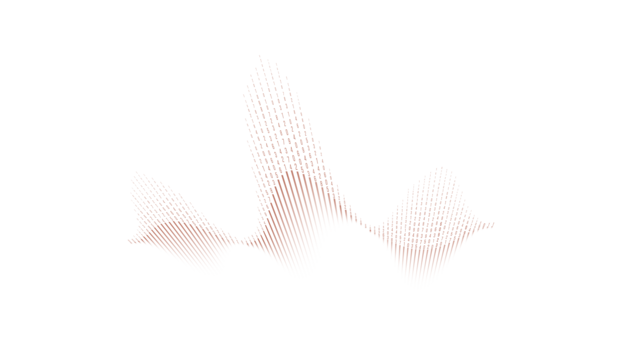Media Center
DATA FOR A BETTER FUTURE

H.E. Abdulla bin Touq Al Marri: Under the wise leadership’s vision, the UAE has built an innovative economic model based on global best practices. The continuous growth of the national economy reflects the success of the UAE’s economic diversification policies.
We remain committed to achieving the goals of “We the UAE 2031”, aiming to expand the UAE’s GDP to AED 3 trillion by the next decade and securing the UAE’s position as a global hub for new economy.
Hanan Ahli: The UAE’s robust economic performance is backed by a clear future-oriented vision focused on sustainable economic growth.
Additional Subtitles:
• UAE’s real GDP reaches AED 1.322 trillion
• Non-oil GDP reaches AED 987 billion
• Contribution of non-oil sectors to real GDP is 74.6%
• Top-growing sectors: Transport, construction, finance, government, and hospitality
• Leading contributors to non-oil GDP: Trade, manufacturing, finance, construction, and real estate
• Nominal GDP reaches AED 1.486 trillion (6% growth)
• Nominal non-oil GDP reaches AED 1.136 trillion (6.6% growth)
The UAE has recorded significant growth in its real GDP by 3.8%, reaching AED 1.322 trillion in the first nine months of 2024, compared to the same period in 2023. Meanwhile, non-oil GDP expanded by 4.5% to AED 987 billion, accounting for 74.6% of total real GDP, while oil-related activities accounted for 25.4%.
Commenting on this performance, H.E. Abdulla bin Touq Al Marri, Minister of Economy, emphasized that the UAE’s sustained economic growth is a testament to the success of its policies and strategies aimed at enhancing economic diversification, streamlining business operations, and driving the expansion of new economy sectors as key drivers of sustainable economic and social development. He highlighted that, under the leadership of His Highness Sheikh Mohamed bin Zayed Al Nahyan, President of the UAE, and the guidance of His Highness Sheikh Mohammed bin Rashid Al Maktoum, Vice President and Prime Minister of the UAE, and Ruler of Dubai, the UAE has built an agile and globally competitive economic model capable of adapting to global challenges and rapid changes.
“The UAE continues to increase the contribution of non-oil sectors to the national economy by developing flexible economic legislation, enhancing global trade openness, and building strategic partnerships with key international markets. These efforts align with the “We the UAE 2031” vision, which aims to grow the UAE’s GDP to AED 3 trillion within the next decade and secure its position as a global economic hub,” H.E. bin Touq added.
Hanan Ahli, Managing Director of the Federal Competitiveness and Statistics Centre, stated: “The UAE’s GDP growth over the past nine months reflects our strong economic performance and future-driven vision focused on sustainable economic expansion, led by non-oil sectors.”
“Economic diversification remains a key pillar of the UAE national strategy, ensuring long-term growth in the economy and in key economic and development indicators,” she emphasized.
Top-Growing Economic Sectors
During the first nine months of 2024, the UAE’s fastest-growing economic sectors showcased remarkable expansion compared to the same period in 2023. The transport and storage sector experienced a significant growth of 7.9%, largely driven by a surge in passenger traffic at UAE airports, which welcomed over 103 million travelers, marking a 20% increase. Similarly, the construction and building sector expanded by 7.4%, fueled by substantial investments in large-scale urban infrastructure projects. The financial and insurance sector also saw steady growth, rising by 6.8%, while government activities expanded by 5.0%. Additionally, the hospitality and restaurant sector recorded a 4.9% increase, reflecting the continued momentum in the tourism industry.
When examining the key contributors to non-oil GDP, trade emerged as the largest sector, accounting for 16.5% of total non-oil economic output. Following closely behind, manufacturing contributed 15.1%, underscoring the UAE’s industrial strength. The financial and insurance sector played a crucial role, making up 12.1% of non-oil GDP, while construction and building activities contributed 11.7%, and the real estate accounted for 7.6%.
Overall, the UAE’s nominal GDP reached AED 1.486 trillion during the first nine months of 2024, reflecting an impressive 6% year-on-year growth. The nominal non-oil GDP also grew significantly, reaching AED 1.136 trillion, with a 6.6% increase. Notably, non-oil sectors contributed 76.5% to the total GDP, further highlighting the UAE’s progress in economic diversification and sustainable growth.
United Voices for 2045: UAE Launches a Global Survey to Shape the Future of Sustainable Development
H.E. Abdulla bin Touq Al Marri: Under the wise leadership’s vision, the UAE has built an innovative economic model based on global best practices. The continuous growth of the national economy reflects the success of the UAE’s economic diversification policies.
We remain committed to achieving the goals of “We the UAE 2031”, aiming to expand the UAE’s GDP to AED 3 trillion by the next decade and securing the UAE’s position as a global hub for new economy.
Hanan Ahli: The UAE’s robust economic performance is backed by a clear future-oriented vision focused on sustainable economic growth.
Additional Subtitles:
• UAE’s real GDP reaches AED 1.322 trillion
• Non-oil GDP reaches AED 987 billion
• Contribution of non-oil sectors to real GDP is 74.6%
• Top-growing sectors: Transport, construction, finance, government, and hospitality
• Leading contributors to non-oil GDP: Trade, manufacturing, finance, construction, and real estate
• Nominal GDP reaches AED 1.486 trillion (6% growth)
• Nominal non-oil GDP reaches AED 1.136 trillion (6.6% growth)
The UAE has recorded significant growth in its real GDP by 3.8%, reaching AED 1.322 trillion in the first nine months of 2024, compared to the same period in 2023. Meanwhile, non-oil GDP expanded by 4.5% to AED 987 billion, accounting for 74.6% of total real GDP, while oil-related activities accounted for 25.4%.
Commenting on this performance, H.E. Abdulla bin Touq Al Marri, Minister of Economy, emphasized that the UAE’s sustained economic growth is a testament to the success of its policies and strategies aimed at enhancing economic diversification, streamlining business operations, and driving the expansion of new economy sectors as key drivers of sustainable economic and social development. He highlighted that, under the leadership of His Highness Sheikh Mohamed bin Zayed Al Nahyan, President of the UAE, and the guidance of His Highness Sheikh Mohammed bin Rashid Al Maktoum, Vice President and Prime Minister of the UAE, and Ruler of Dubai, the UAE has built an agile and globally competitive economic model capable of adapting to global challenges and rapid changes.
“The UAE continues to increase the contribution of non-oil sectors to the national economy by developing flexible economic legislation, enhancing global trade openness, and building strategic partnerships with key international markets. These efforts align with the “We the UAE 2031” vision, which aims to grow the UAE’s GDP to AED 3 trillion within the next decade and secure its position as a global economic hub,” H.E. bin Touq added.
Hanan Ahli, Managing Director of the Federal Competitiveness and Statistics Centre, stated: “The UAE’s GDP growth over the past nine months reflects our strong economic performance and future-driven vision focused on sustainable economic expansion, led by non-oil sectors.”
“Economic diversification remains a key pillar of the UAE national strategy, ensuring long-term growth in the economy and in key economic and development indicators,” she emphasized.
Top-Growing Economic Sectors
During the first nine months of 2024, the UAE’s fastest-growing economic sectors showcased remarkable expansion compared to the same period in 2023. The transport and storage sector experienced a significant growth of 7.9%, largely driven by a surge in passenger traffic at UAE airports, which welcomed over 103 million travelers, marking a 20% increase. Similarly, the construction and building sector expanded by 7.4%, fueled by substantial investments in large-scale urban infrastructure projects. The financial and insurance sector also saw steady growth, rising by 6.8%, while government activities expanded by 5.0%. Additionally, the hospitality and restaurant sector recorded a 4.9% increase, reflecting the continued momentum in the tourism industry.
When examining the key contributors to non-oil GDP, trade emerged as the largest sector, accounting for 16.5% of total non-oil economic output. Following closely behind, manufacturing contributed 15.1%, underscoring the UAE’s industrial strength. The financial and insurance sector played a crucial role, making up 12.1% of non-oil GDP, while construction and building activities contributed 11.7%, and the real estate accounted for 7.6%.
Overall, the UAE’s nominal GDP reached AED 1.486 trillion during the first nine months of 2024, reflecting an impressive 6% year-on-year growth. The nominal non-oil GDP also grew significantly, reaching AED 1.136 trillion, with a 6.6% increase. Notably, non-oil sectors contributed 76.5% to the total GDP, further highlighting the UAE’s progress in economic diversification and sustainable growth.
United Voices for 2045: UAE Launches a Global Survey to Shape the Future of Sustainable Development
International day of sign language
His Highness Sheikh Mohammed bin Hamad bin Mohammed Al Sharqi, Crown Prince of Fujairah, received, at his office at the Amiri Diwan, the members of the Higher Committee for Coordination of Statistical Work at the State level
Professor Jeffrey D. Sachs, President of the UN Sustainable Development
Highlights of H.E Noor AlKhulaif, Minister of Sustainable Development
Intro to UNCEBD Task Team Training Competencies Capacity Level
UN Regional Hub for BIG DATA in UAE WEBINAR SERIES
Close X
Date will get updated
test
